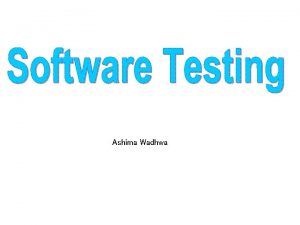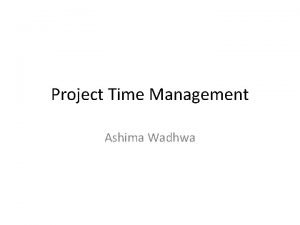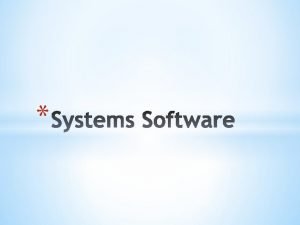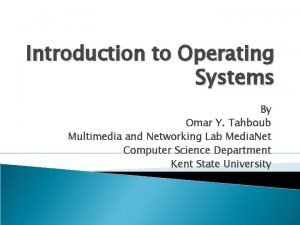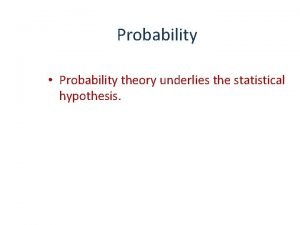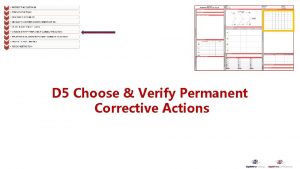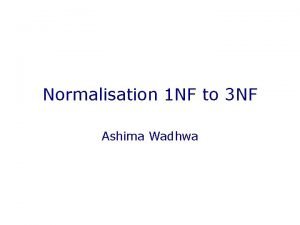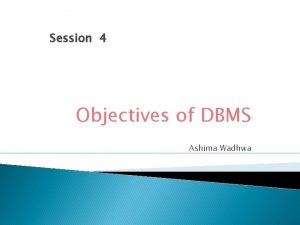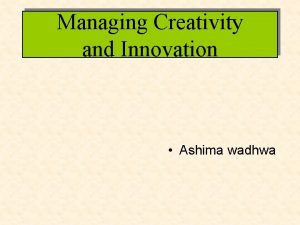Events Ashima Wadhwa Events Events are user actions











- Slides: 11

Events Ashima Wadhwa

Events • Events are user actions such as key press, clicks, mouse movements, etc. , or some occurrence such as system generated notifications. Applications need to respond to events when they occur. For example, interrupts. Events are used for inter-process communication.

Events • An event in C# is a way for a class to provide notifications to clients of that class when some interesting thing happens to an object. The most familiar use for events is in graphical user interfaces; typically, the classes that represent controls in the interface have events that are notified when the user does something to the control (for example, click a button).

Publisher • Publisher is responsible for publishing messages of various types. • A publisher is an object that contains the definition of the event and the delegate. The event-delegate association is also defined in this object. A publisher class object invokes the event and it is notified to other objects.

subscriber • Subscriber captures messages of the type it is interested in. • A subscriber is an object that accepts the event and provides an event handler. The delegate in the publisher class invokes the method (event handler) of the subscriber class.

publisher-subscriber model. • The events are declared and raised in a class and associated with the event handlers using delegates within the same class or some other class. The class containing the event is used to publish the event. This is called the publisher class. Some other class that accepts this event is called the subscriber class. Events use the publisher-subscriber model.

Declaring Events • To declare an event inside a class, first a delegate type for the event must be declared. For example, public delegate void Boiler. Log. Handler(string status); • Next, the event itself is declared, using the event keyword: • //Defining event based on the above delegate event Boiler. Log. Handler Boiler. Event. Log;

using System; delegate void Handler(); // Declare the delegate class Incrementer { public event Handler Counted. ADozen; //Create and publish an event public void Do. Count() { for (int i=1; i<= 100; i++) if (i %12==0 &&Counted. ADozen != null) Counted. ADozen(); //raise the event every 12 counts. } }

class Dozens { public int Dozens. Count { get ; private set ; } public Dozens(Incrementer incrementer) { Dozens. Count=0; incrementer. Counted. ADozen += Increment. Dozens. Count; } void Increment. Dozens. Count() { Dozens. Count++; } }

class Program { static void Main() { Incrementer incrementer = new Incrementer(); Dozens dozens. Counter =new Dozens(incrementer); incrementer. Do. Count(); Console. Write. Line("Number of dozens = {0} " , dozens. Counter. Dozens. Count); } }

Output
 Ashima wadhwa
Ashima wadhwa What is technology absorption
What is technology absorption Ashima wadhwa
Ashima wadhwa Insidan region jh
Insidan region jh Neal wadhwa
Neal wadhwa Seema wadhwa
Seema wadhwa Restorative circle script
Restorative circle script Single user and multi user operating system
Single user and multi user operating system Types of operating systems
Types of operating systems Mutually exclusive events vs not mutually exclusive events
Mutually exclusive events vs not mutually exclusive events Kentucky board of nursing
Kentucky board of nursing Permanent corrective actions
Permanent corrective actions
